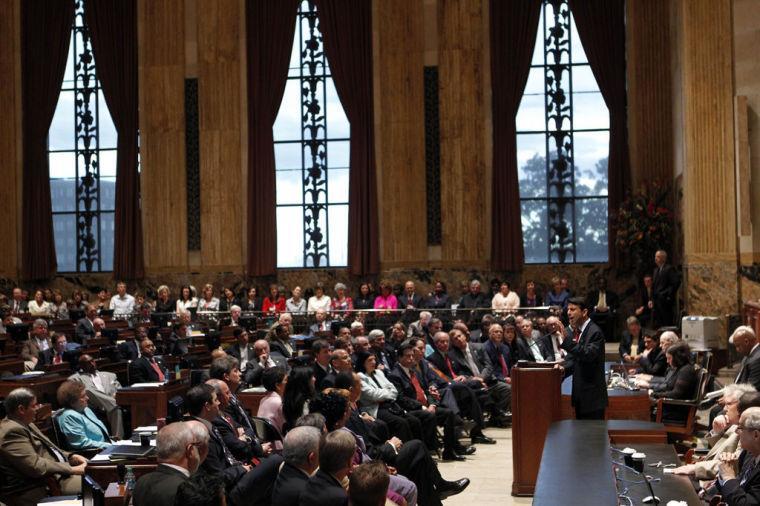Sex is a right, not a privilege. And it’s one that Louisiana lawmakers are trying to take away from you.
Louisiana legislation has been on fire recently with attacks on human sexuality coming from left and right. Well, mostly the right.
A Louisiana legislative committee passed a bill earlier this month that aims to ban organizations with ties to abortion services from providing sex education materials or other information to students in public schools.
Citing the rising STD and teen pregnancy rates in our state, opponents of the bill have history on their side. However, as we’ve learned this semester, tradition matters.
One example of this is our tradition of providing medically inaccurate, religiously fueled sex education to children. We tell them that sex is not OK to have, talk about or be interested in until they are married.
Historically, people have been proven to have sex, both in and out of marriage. It may surprise you to know that your teachers, friends, even some of your family members have had sex before. But it’s kept so hush-hush because we don’t want to talk about something that brings humans pleasure.
Sexual intimacy is not all about pleasure, though. There is something within the human spirit that desires a sense of community, which is why we have families, friend groups, sororities, etc. But the need to connect on an intimate, personal level is just as important as the need to belong to a group.
In the 18th and 19th centuries, black men and women were enslaved in our country, under horrendous conditions. Slave owners treated them as property, as less than human.
But slaves had sex. They gave birth. They started families. And it couldn’t have been from a desire to have children grow up in the same conditions they had been living in.
It was a desire to feel human, in a time when they were told that they were less than that. Slaves sought hope and comfort through intimacy and, thanks to a lack of information of contraceptives and family planning, had children.
We are seeing a similar problem now, and it is prominent in Louisiana.
Americans are born into a system that assigns worth based on economic status. For those growing up below the poverty line, it’s easy to feel like you are worth less than others.
It’s a saying I heard many times growing up: we might not have money, but we are rich with love.
Unfortunately, the love and comfort that comes from an intimate relationship can result in unplanned pregnancies for people who cannot afford the expense of a child, thereby increasing the financial burden on our state.
While I understand the objection to abortion in a state as conservative as Louisiana, I don’t understand the unwillingness to educate those who are at risk for STDs and unwanted pregnancies. That group includes practically everyone living in the state of Louisiana.
There are many people who stand by a belief that if you do not want to have a child, you should not have sex. But this denies the right to sexual intimacy that human beings have.
Abstinence-only sex education does nothing to help our state. It only continues the spread of poverty and disease. Initially created to combat the 1980’s AIDS epidemic among gay men, abstinence-only sex education taught the dangers of having sex, attempting to use fear as a contraceptive.
And it didn’t work. People continued to have sex and lost their lives to the epidemic, because no one thought to be proactive about sex education.
The desire to share yourself intimately, to be comforted and cared for by someone that you love is not one that we can deny a human being.
Abstinence-only sex education, however, banks on us seeing sexual pleasure as unnecessary— a privilege.
History has proven that human intimacy and sexuality are powerful, and it’s time for our lawmakers to stop living in fear of it and start supporting programs that better suit the citizens.
Jana King is a 19-year-old communication studies sophomore from Ponchatoula, La.
Opinion: History proves that abstinence-only sex education isn’t effective
By Jana King
April 22, 2014
More to Discover











